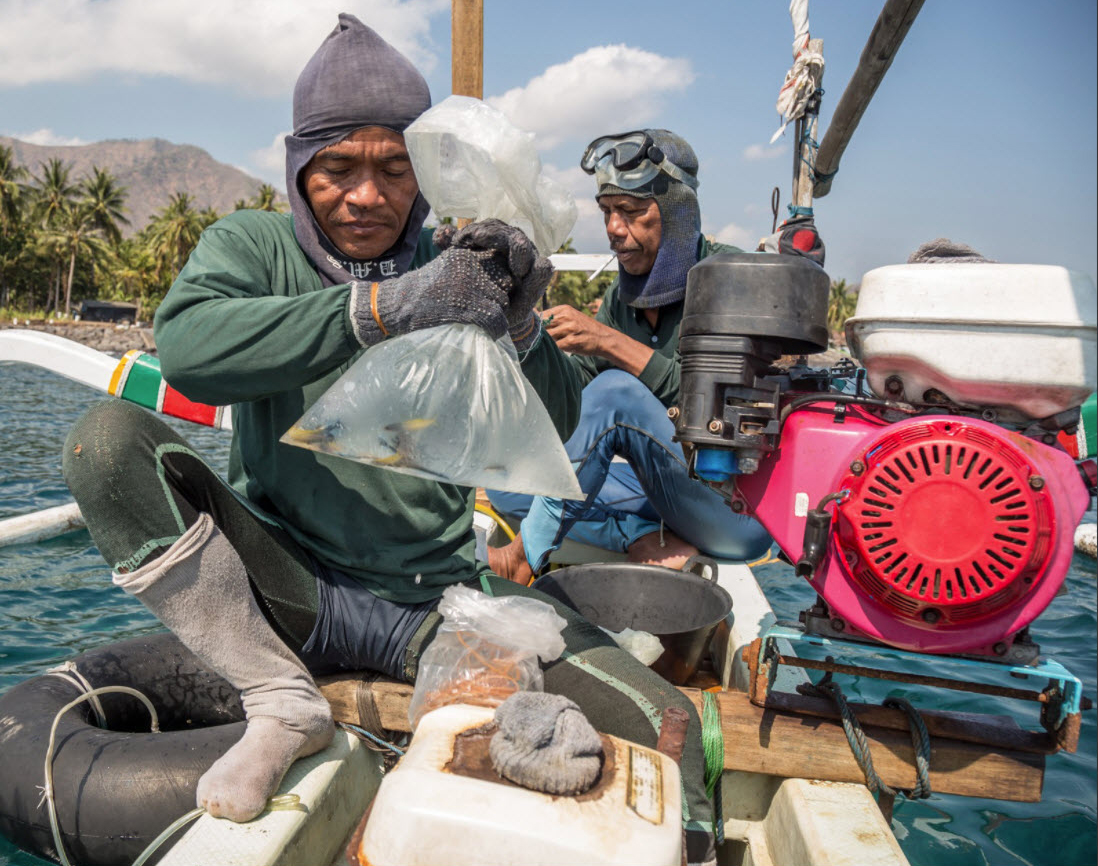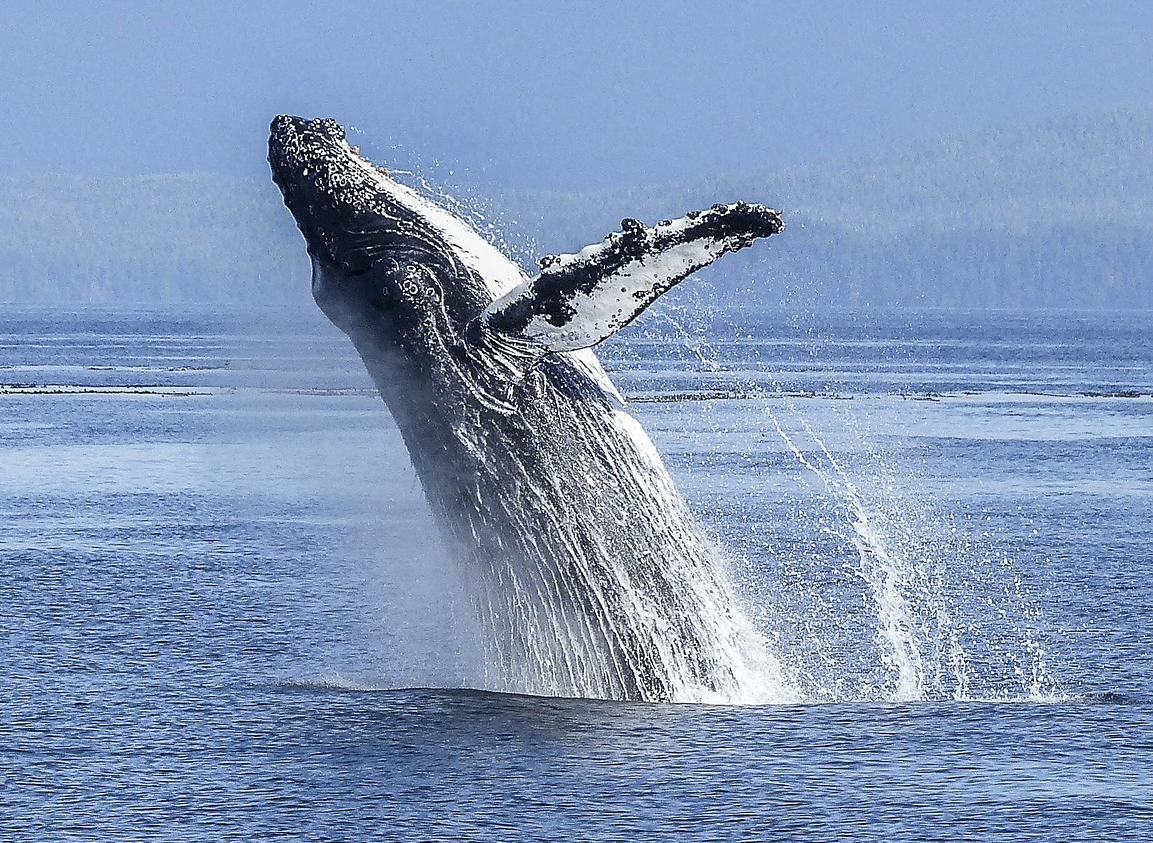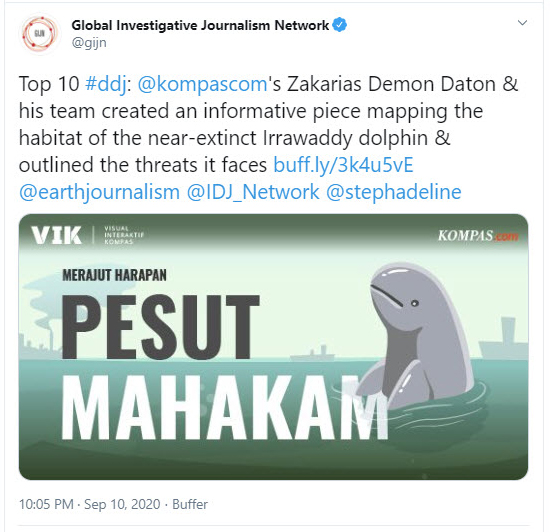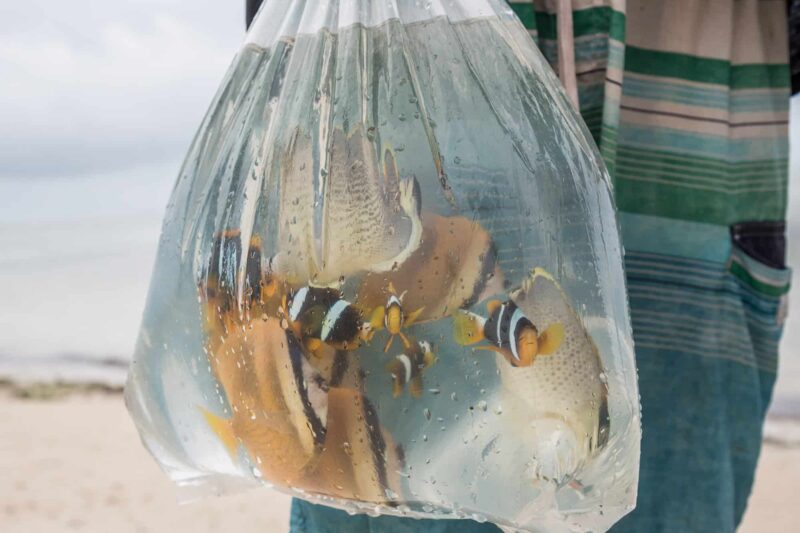“It is quite strange when you think about it, that the small fish you see swimming in your local aquarium shop once swam in a tropical sea, more than 10,000 kilometers away.” — Journalist Ingrid Gercama, co-author of a multi-country investigation of the international trade in tropical fish and coral
Our latest impact story comes to us via the Netherlands following a months-long investigation into the trade in tropical fish and coral by grantees from our Investigating Wildlife Trafficking program. Their reporting raised the attention of government officials who acknowledged the importance of species conservation and of the need for more awareness about those species that don’t receive international protection. Species protection is at the heart of many of our projects, including the Biodiversity Media Initiative, which we just re-launched thanks to new funding. In light of the Covid-19 pandemic, which is thought to have arisen through human contact with wildlife and which has exacerbated some of the threats facing biodiversity worldwide, the re-launch of this project is critically timed to highlight these threats and discuss potential solutions. We’re also highlighting two new rounds of funding, one for biodiversity reporting and another for investigative story proposals focused on wildlife trafficking and environmental crime in East Africa. And, check out one of our latest tip sheets on how to cover climate and environmental justice. Finally, we’ll be emailing you an important survey later this afternoon that we’re hoping you will take the time to participate in, so please keep a look out for it!
Impact: EJN-Supported Investigation Triggers Dutch Parliamentary Inquiry
 In 2019, EJN supported journalists Ingrid Gercama and Nathalie Bertrams to investigate the scale of the trade in tropical fish and coral and the risk that European buyers could be driving illegal and unsustainable harvesting. Their story, published in multiple languages across many media outlets, recently sparked an inquiry about the sustainability of the trade by two Dutch members of parliament and elicited a formal reply from the head of the House of Representatives who acknowledged that the government didn’t have data on the vast majority of tropical fish not covered by an international convention known as CITES. “In addition, alertness to the conservation of the wild populations of species that are not on CITES is important,” the response stated. Read more about the latest impact of our reporting.
In 2019, EJN supported journalists Ingrid Gercama and Nathalie Bertrams to investigate the scale of the trade in tropical fish and coral and the risk that European buyers could be driving illegal and unsustainable harvesting. Their story, published in multiple languages across many media outlets, recently sparked an inquiry about the sustainability of the trade by two Dutch members of parliament and elicited a formal reply from the head of the House of Representatives who acknowledged that the government didn’t have data on the vast majority of tropical fish not covered by an international convention known as CITES. “In addition, alertness to the conservation of the wild populations of species that are not on CITES is important,” the response stated. Read more about the latest impact of our reporting.
EJN’s Biodiversity Media Initiative Returns with Call for Media Grant Applications
EJN has re-launched our Biodiversity Media Initiative thanks to a second grant from the Arcadia fund. The project, which will work to improve media coverage of biodiversity and conservation issues in places where information is most under threat and most urgently needed, is critically timed to highlight threats facing biodiversity, like the illegal wildlife trade, and discuss potential solutions. To kick off our re-launch, we’re seeking applications from journalist networks, media organizations, civil society organizations or academic institutions working to raise awareness through the media about these issues. Read more about the project. Apply for our media grant opportunity.
UC Berkeley Earth Journalism Students Cover Whales, COVID-19, and Fire
 For the eighth year in a row, EJN collaborated with the UC Berkeley Graduate of School of Journalism (JSchool) to support a semester-long Earth Journalism course for 14+ graduate students on how to cover environment and climate issues.
For the eighth year in a row, EJN collaborated with the UC Berkeley Graduate of School of Journalism (JSchool) to support a semester-long Earth Journalism course for 14+ graduate students on how to cover environment and climate issues.
Pandemic limitations prevented the students from traveling for the grant-funded reporting trips – an annual feature of the class. But, thanks to a ground-breaking program initiated by the JSchool’s Investigative Reporting Program, the students had the opportunity to do some original reporting on the pandemic for The New York Times and other respected outlets, such as The Atlantic and KQED public radio. Read more
Opportunities
- Biodiversity Media Grants: A new round of grant opportunities for journalist networks, media organizations, civil society organizations or academic institutions that are working to improve media coverage of biodiversity and conservation issues in countries where information is most under threat and most urgently needed. Deadline: 15 October 2020.
- Investigative Story Grants: Journalists from Kenya, Uganda, Tanzania, and Rwanda are eligible for reporting grants of up to $2,000 to produce investigative stories that dig deep into the illegal wildlife trade in East Africa and beyond. Deadline: 19 October 2020
Reporter Resource
- Spotlight on Climate and Environmental Justice: A tip sheet that looks at how environmental injustice is so often tied to deep-rooted social and racial inequalities. Journalists Drew Costley and Sweta Daga and Lisa Garcia, the head of Grist’s solutions lab Fix, discuss ways to think about these issues and bring them into your reporting.
What we’re reading, listening to, learning from…
- Read:
- Fire has been one of the biggest threats of recent months, with massive infernos setting records around the planet. Here’s a look at some of the countries and regions worst hit.
- Our partners have also been following the latest Global Biodiversity Outlook, an annual report by the UN Convention on Biological Diversity that warned this year of an unprecedented rate of biodiversity loss. This piece from The Third Pole looks at what that means for human health and prosperity, while this interview with expert scientist Sir Robert Watson explores ways to address the problem.
- Watch:
- In late August, Yale360 produced this photo essay that reveals how timber and agribusinesses in Cambodia are ravaging protected lands and how some indigenous groups are fighting to stop them.
- Listen:
- Speaking of forests, we’ve been listening to this great environment podcast, “How to Save a Planet,” which is taking on questions about what we need to do to solve the climate crisis. In this episode, 20 Million Trees, they talk about whether planting trees really makes a difference and how much.
- Learn:
- Finally, this article answers questions about what economic growth really means when it comes to sustainability, and what may need to change about our economic system to prevent the worst consequences of climate change.
Check out this tweet about the latest work our partners at the Indonesia Data Journalism Network supported following their recent hackathon.

Connect with Us
Follow us on Facebook, Twitter and Instagram to see how we’re covering today’s most pressing environmental issues and visit our website to read our latest stories.
